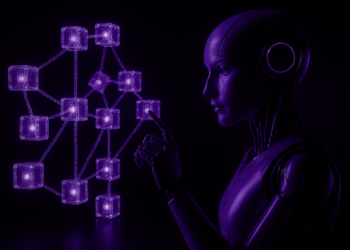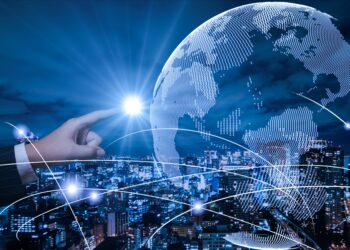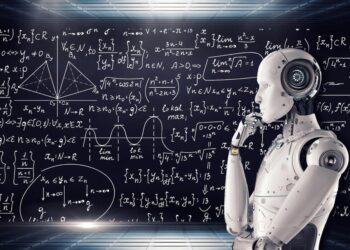Generative AI is poised to redefine the very concept of work. While we typically think of AI as a tool to make tasks easier, we’re on the verge of a profound transformation that could blur the boundaries between human creativity, AI augmentation, and even how we define a “job.” This isn’t just about automating routine tasks; it’s about reimagining the world of work altogether. Here’s a vision of the future with both the opportunities and the challenges of this radical shift.
In a hurry to grab lunch? You can also listen to the audio above, an AI-generated podcast episode summarising this article.
1. The Era of Personal AI Workers
Picture a future where everyone has a digital twin—an AI version of themselves that works independently while they sleep or engage in high-level tasks. This twin could autonomously handle meetings, draft reports, and even engage in negotiations, acting on your behalf based on your preferences, behaviour, and decision-making style.
This vision isn’t far-fetched. Artificial Intelligence is already generating reports, writing code, and making decisions faster than ever. As this technology evolves, we may see AI counterparts handling more and more of our routine tasks, thus multiplying our productivity.
The New Role of Humans: Curators and Mentors for AI
As AI becomes more capable, human roles will shift from active creation to curating and mentoring. Instead of creating content from scratch, workers will refine AI-generated work—adding nuance, context, and creativity where necessary. This allows humans to act as quality controllers, guiding thechnology toward more sophisticated outcomes.
Moreover, humans could become mentors to AI, teaching it to learn company ethics, values, and nuanced decision-making. This mentorship ensures that AI-generated outputs reflect not only efficiency but also the unique qualities of human-driven work.
Creativity Reimagined: the Ultimate Creative Partner
Generative AI can act as a creative collaborator rather than a mere tool. In industries such as marketing, design, or entertainment, AI could generate ideas, test variations, and push the boundaries of creativity. Imagine brainstorming with machines to create entirely new art forms or invent products that were previously unimaginable.
AI-generated content could open doors for teams to explore new genres of music, design futuristic fashion lines, or create immersive digital worlds. With technoligy serving as a creativity booster, industries can push the boundaries of innovation more quickly and broadly.
2. A World Where Work Becomes Play
Artificial Intelligence could pave the way for a post-work society where many traditional “work” tasks are handled by computers, allowing humans to focus on creative, intellectual, and social pursuits. In this new world, work is driven by personal fulfilment, passion projects, and community-focused innovation rather than mere economic survival.
This doesn’t mean work disappears—it simply evolves. With machines handling the routine, humans can focus on pushing the boundaries of innovation, building relationships, and making creative contributions. In a society where productivity is measured by personal growth rather than output, work becomes an arena for self-expression.
Related Article: Building an AI-Ready Culture
Digital Guilds: AI-Enhanced Global Collaboration
In the future, digital guilds could emerge—virtual networks where the best minds and AI systems collaborate to tackle global challenges. Picture a team of scientists, engineers, and creatives, each paired with their AI twin, working together to solve problems like climate change or pandemic response.
These guilds would be fluid, borderless collectives, bringing together people and technology to achieve collective goals on a global scale. AI would handle logistics and data, while humans bring creativity and ethics to the table. This AI-enhanced collaboration could lead to breakthrough innovations at a rate that would be impossible with human effort alone.
3. The Two Sides of AI in Businesses
[Side A] The Benefits for Companies: Hyper-Efficiency and Innovation
While this future sounds exciting for workers, companies stand to benefit just as much:
- Unprecedented Efficiency: Generative AI can reduce operational costs by automating tasks like data processing, customer service, and even content creation. Companies can scale their operations without increasing their workforce in proportion, resulting in higher productivity and lower costs.
- Accelerated Innovation: With AI taking care of routine tasks, companies can innovate faster. New tools can generate product designs, automate A/B testing for marketing, and even assist in developing new business strategies. This leads to shorter innovation cycles and faster time-to-market, giving companies a significant competitive edge.
- Enhanced Customer Experience: AI allows companies to deliver personalised customer experiences at scale. By analysing customer behaviour in real time, it can provide personalised recommendations, content, and even marketing campaigns. This hyper-personalisation will improve customer satisfaction, driving loyalty and increasing market share.
- New Revenue Models: AI can open up new business models that were previously impossible. Companies can create AI-driven services, automate content creation, and even generate unique products tailored to individual customers. This diversification of services and products could significantly boost revenues.
- Workforce Transformation: Rather than displacing workers, AI can help elevate them into more strategic roles. Employees can focus on tasks that require human insight—such as ethical decision-making, relationship-building, and creative problem-solving. This could lead to a more motivated and engaged workforce, improving both productivity and employee satisfaction.
[Side B] Challenges and Ethical Considerations
While the potential of generative AI is exciting, it’s crucial to acknowledge the ethical challenges and risks:
- Job Displacement: While new roles will certainly be created, there will inevitably be sectors where AI replaces traditional jobs, particularly in lower-skilled industries. The challenge will be in retraining and upskilling workers to move into more strategic or creative roles.
- Bias and Fairness: Generative AI systems are only as good as the data they are trained on. If the data is biassed, AI can perpetuate discriminatory practices. Companies must implement ethical frameworks to ensure fairness, transparency, and accountability.
- Data Privacy and Security: the reliance on data presents significant risks around privacy and intellectual property. Companies will need robust data governance structures to protect sensitive information and ensure compliance with regulations.
At Wemanity, we have developed an AI Transformation approach that enables organisations to fully harness the ever-evolving power of Artificial Intelligence, while keeping humans as protagonists. See this page for more information on how we make that possible.
4. A Bold New Future
Generative AI is not just changing the way we work—it’s changing what work means. From digital personal assistants to digital guilds solving global challenges, the future of work is about enhancing human potential. For individuals, this means more fulfilling and creative roles. For companies, it means higher efficiency, faster innovation, and entirely new revenue streams.
However, navigating this future responsibly requires a strong focus on ethics, trust, and human oversight. By placing people at the centre of the AI revolution, we can harness the transformative power of generative AI to create a future where work becomes a source of creativity, connection, and fulfilment.












